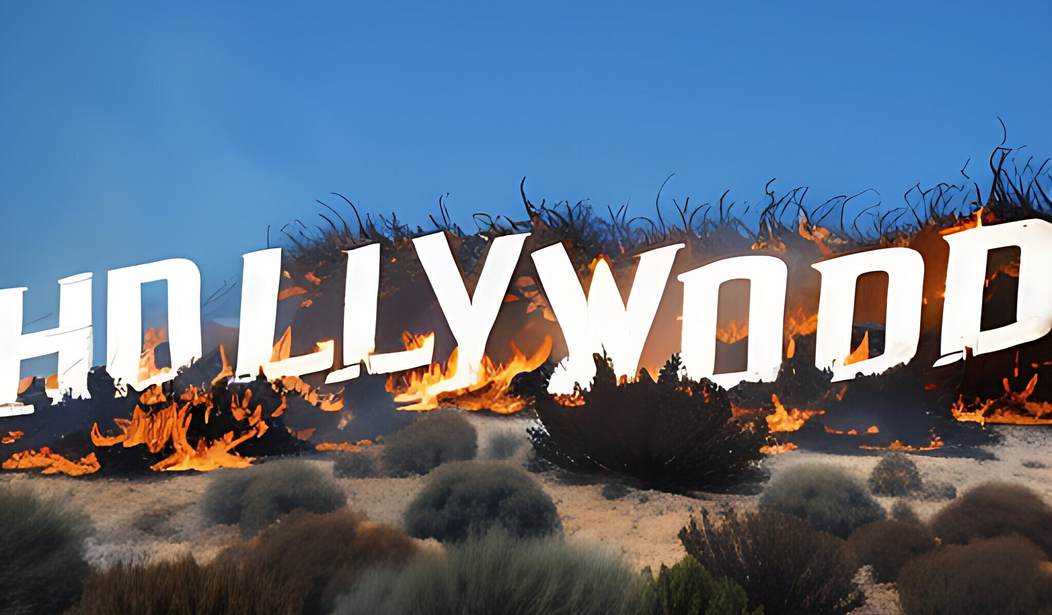“Who would want to save Hollywood,” I can almost hear you ask, “after years of rising prices, declining quality, endless crappy reboots, exhausted franchises, and having lefty ideology crammed down our throats?”
You aren’t wrong. But I like movies and TV shows, I really do. And so did you, once upon a time. I’d like to like them again like I used to. Like, soon.
Last month, Breitbart’s John Nolte provided some sharp analysis detailing the “six reasons Hollywood’s in real trouble this time” in reaction to the ongoing writers’ strike. After cable broke the broadcast networks’ monopoly, streaming broke cable. “Pay TV successfully circumvented merit with a rigged system,” Nolte wrote, “where you pay for dozens of channels you never watch.”
Complicating things further, the combination of paid streaming and 4K home theater systems with Dolby Atmos was supposed to replace some of the money Hollywood lost on declining theater attendance. But with streaming, you pick up and drop entire channels to your heart’s content. Er, CONtent, I guess. Dropping Max (formerly HBO) after a crap final season of “Game of Thrones” is much easier now that it’s an app than it was as part of a Comcast bundle.
“Merit means Hollywood makes money based on what people actually watch,” and we aren’t watching enough of the current dreck Hollywood produces for streaming to make much money. Even Disney, with its nearly century-old treasure trove of original content, lost billions on its streaming service last year.
Hollywood has responded to this long-simmering crisis by playing it safe with the stories and reckless with the spending. Nobody was asking for a fifth Indiana Jones movie, but as a known and beloved property, how could it lose money?
Simple: throw money at it until there’s no possible way it could do anything but lose money. Indy 5 was originally budgeted at something like $200 million. But the stinker of a script kept Disney throwing money at endless reshoots until the budget ballooned to over $300 million, maybe even $350 or $400. It’s expected to lose a bare minimum of $100 million for the studio.
Even a bona fide hit like the new Mission: Impossible will struggle to make enough money to justify its massive budget.
Recommended: Kayla Lemieux and His Z-Cup Prosthetics Are Making an Oversized Comeback
These aren’t edge cases, either. A new Star Wars movie hasn’t entered production since 2017, and the endless stream of Star Wars TV shows on Disney+ haven’t enjoyed big viewing numbers since the second season of “The Mandalorian” in 2020. About the only bright spot this summer is “Barbie,” which will go down in history as Warner Bros’ biggest box office hit to date.
If you’d like to know how desperate Hollywood is right now, Variety reported last week that Warner’s Discovery streaming service “will test out CNN news alerts while Max viewers are watching TV shows and movies on the platform.” So you’re watching an episode of “Deadliest Catch,” trying to forget the world’s troubles, when a paid popup appears on your screen with a CNN alert about the latest treason Donald Trump committed.
As for next year… Thanks to the Writers Guild strike, there won’t be much new content for studios to throw money at, praying for a hit.
Cable fractured the broadcast market and streaming (plus the 2020 lockdowns) fractured movie viewing, and segmented TV audiences even further. Maybe the problem isn’t that budgets are too big but that addressable markets are too small to support most big budgets.
Watch an old episode of “Hill Street Blues,” an hour-long cop drama shot for $14 back in 1982. Then try watching an episode of “Rings of Power,” a Tolkien-derived fantasy that cost $58 million to produce. Per episode. It isn’t fair to compare an ’80s cop drama with a big-budget fantasy series, mostly because people still love “Hill Street” and hardly anybody liked “Rings of Power,” even when it premiered.
The difference is that “Hill Street” was well-written and well-acted. “Rings of Power” was not.
So here’s my one weird trick for saving Hollywood: Smaller budgets, better writing.
Smaller budgets mean not relying on jillion-dollar CGI. Better writing means forgetting about the special effects and focusing on the things we really care about: character and story. It also means dropping the Woke garbage that’s poisoned so many beloved franchises.
This isn’t rocket surgery. Some of the biggest box office successes — including the original “Star Wars” — were shot on budgets that wouldn’t even pay the catering crew on “Thor: Love and Thunder.” While there’s still plenty of room for big-budget summer blockbusters, regularly spending $200-plus million on things like a Snow White reboot that can’t afford more than one dwarf is a bit much.
The question remains: Can Hollywood save itself with my one weird trick, or does the industry, as currently managed, even want to change? As Nolte pointed out, “Once the Woke Parasites infest something, they never let go or compromise.”










Join the conversation as a VIP Member